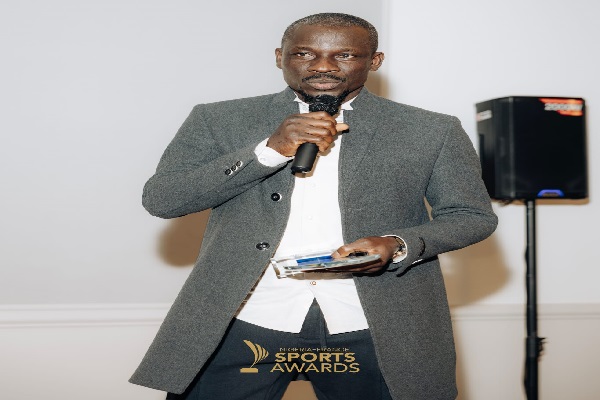Copyright Artvoice

The Man Who Took His Genius and Left America Part I –The Case Against Him German inventor Bernhard Fritsch left the United States, transferring several potential multibillion-dollar technology ventures, including his intellectual-property assets and patent portfolio, to Germany rather than spend 15 years in an American prison. He tells the story of why he left a country he once saw as a land of opportunity. Bernhard Fritsch with the patent that started it all – the technology that became I-Tunes. The Rise of StarClub Bernhard Fritsch built one of the first digital recording studios. He holds 29 patents, including one licensed by Apple for use in iTunes. Years later, among other ventures, he founded, StarClub, a platform that allowed artists to earn directly from their content—years ahead of the modern creator economy. StarClub, under Fritsch’s direction, had built proprietary technologies and attracted high-profile users—celebrities and influencers with a combined audience of more than two billion people. StarClub could potentially have been worth billions and become a legitimate competitor to media companies and big tech social media platforms. The Investor Who Turned Accuser Then came one single investor out of seventy-two who changed everything. Danny Garrison Guy, originally from Canada, but relocated to Bermuda, invested $7 million into StarClub in 2014-2015. He had used the “death spiral” model at Salida Capital and Harrington Global. These hedge funds generated billions in investor losses, while the strategy allowed him to profit through short sales. After his investment into StarClub, Guy urged Fritsch to sell the company to Facebook or, alternatively, pursue a similar “death spiral” strategy. The FBI Steps In According to the case record, the FBI investigation began around 2016, after Fritsch declined these proposals from Guy. Court records show Guy met privately with Assistant U.S. Attorney Karen Escalante and FBI Special Agent Gregory Austin over dinners and drinks at high-end Santa Monica beach clubs. This evolved into a period of daily communication that lasted for months. Special Agent Austin later testified that he relied on Guy and his private investigators to build the case. Whereas StarClub, under Fritsch’s direction, had built proprietary technologies and attracted high-profile users—celebrities and influencers with a combined audience of more than two billion people. It was a growing company that could be potentially worth billions and be a legitimate competitor to media companies and big tech social media platforms. When Guy couldn’t acquire StarClub, he became its accuser. StarClub was in healthy financial shape and solvent. There was no default. No one had lost a dime until the FBI, on Guy’s direction, took the company down in August 2017. Seventy-two investors backed StarClub, including Fritsch who was the single largest investor. Only one —Danny Guy—claimed he had been defrauded. At the time of Guy’s accusations, StarClub, according to independent audits, was in healthy financial shape and solvent when Guy began working with the FBI and claimed that Fritsch had deceived him into investing by making false statements. The FBI’s case relied on secret recordings provided by Guy. Crucially, the Bureau never authenticated the tapes, particularly failing to accurately date them. An undercover FBI agent posing as an investor met with Fritsch, with Guy present. The discussion focused on business matters, and the recording revealed no criminal conduct and was never used at trial. Still, Agent Austin used that ”sting” meeting with all the inferences of fraud, based on Guy’s version of what StarClub was worth and its financial status, to secure a search warrant. His affidavit identified no falsified documents or hidden accounts. Yet it provided inferences and assumptions that supported Guy’s narrative. Based on this, a magistrate signed the arrest and search warrant. The FBI raided StarClub’s offices, seized its computers and records, and arrested CEO Bernhard Fritsch. Federal agents arrested Fritsch on August 2, 2017, booking him into the Los Angeles Metropolitan Detention Center. He remained in custody for five months before the court approved his release on a $7 million bond. He was not determined to be a flight risk or danger to the community- the common reasons for denying bail. The judge cited only one reason for detention: Fritsch was not a U.S. citizen, and Germany does not extradite its citizens. The indictment charged him with three counts of money laundering and two counts of wire fraud —the charges rested entirely on the testimony of Danny Guy. StarClub’s collapse was not a market failure but the product of prosecution. Industry analysts later noted that Facebook adopted similar technologies. The FBI’s destruction of StarClub had eliminated a serious risk to its business model, and to those of other major platforms. Meanwhile, legal fees, bond obligations, and the destruction of the business left Fritsch insolvent. The Long Wait for Trial The “speedy trial” was delayed for years. One year became two, then seven. For much of that time, Fritsch lived under strict court supervision. For nearly seven years before trial, he was confined to his home at night, tracked by an electronic monitor, and barred from travel. A no-contact order cut Fritsch off from investors and colleagues. In 2019, he received an Edison Award for an AI patent that outperformed entries from Adobe and Google. He was unable to develop it due to court-imposed restrictions. On March 18, 2025, United States v. Bernhard Fritsch went to trial, while wildfires tore through Malibu. Fritsch was forced from his home, but Judge Dale Fischer denied his request to postpone. He was assigned public defenders unprepared for a complex financial case. When Fritsch asked for time to hire private counsel, the judge said no. He sought to represent himself pro se. US District Court Judge Fischer agreed and dismissed his assigned lawyers on the Friday before trial. Over the weekend, prosecutors asked the court to reinstate them, concerned that Fritsch might resonate with the jury and cause a mistrial or an acquittal. By Monday, Judge Fischer ordered the public defenders back, against their wishes and despite a 12-page filing saying they were unable to properly defend Fritsch. Forced back into the case, the public defenders asked for a three-day delay to make up for the three days they had been off the case just days before the trial. The judge refused. Instead, she excluded the defense witnesses, thus sparing them the time-consuming task of planning their questions for the experts and gutting the defense at the same time. On the eve of trial, Fritsch retained private attorney Kirk Schenck. Schenck appeared in court and requested a brief delay to review the case file. The judge insisted that the trial proceed immediately. The Verdict and the Escape Assistant United States Attorney, Monica E. Tait led the prosecution in the trial of Bernhard Fritsch.The trial lasted nine days. The court had dismissed the three money-laundering counts, leaving two wire fraud charges. The case was going well until the prosecution got caught flat-footed with a Danny Guy lie. Guy said Fritsch had lied to him, which led him to invest $7 million in 2014-2015. The proof was a secretly recorded tape of Fritsch talking to Guy. This sequence—the lie first, followed by the investment—was essential to prove the causation element of wire fraud. The secret recording Guy gave as the proof had been misdated, and the defense was able to show that the recording was made after Guy had made his investment, defeating the cause and effect required for wire fraud. The wire fraud was dead. The case should have been dismissed. The prosecutors, led by AUSA Monica Tait, caught flat-footed—had to make a mid-trial shift in strategy. With their wire fraud theory in tatters, the prosecution executed a dramatic mid-trial pivot. Despite the money laundering counts having been dismissed, they began presenting evidence of Fritsch’s spending—showing pictures of his waterfront home, his expensive cars, his yacht —as though he had taken the money from the company. Fritsch had acquired these assets long before StarClub. The judge excluded evidence of Fritsch’s $27 million investment in StarClub—a sum that far exceeded Guy’s $7 million investment, money earned from his patents and earlier business successes. Surprisingly, the judge allowed the government to literally alter bank records by affixing Fritsch’s name on corporate bank accounts to present to the jury. Defense objections were overruled, and sidebars were held outside the presence of the jury to prevent objections from tainting the one-sided interpretation of the Fritsch case. The public defenders were overwhelmed. This mid-trial shift in theory—from wire fraud to money laundering—constituted a ‘constructive amendment,’ a mid-trial change to the indictment that alone warranted dismissal or mistrial. That amendment, combined with the denial of effective counsel, forms the core of his anticipated appeal. The confused jury delivered a split verdict: not guilty on one count of wire fraud and guilty on the other on April 2, 2025. The moment the verdict came in, the prosecution demanded Fritsch be led out of court handcuffed and sent to prison awaiting his sentence, expected in October. In one of the case’s ironic moments, Judge Fischer declined to remand Fritsch and let him leave the courtroom on the condition that he return. This surprised all observers. Judge Fischer routinely sent defendants to custody upon the jury’s guilty verdict. Judge Fischer set a remand hearing for June 2, two months after the verdict. If Fritsch showed up, his attorneys believed she would incarcerate Fritsch that day. They advised him not to drive himself to court since it would be unlikely, he would be driving home. Fritsch, at age 64, recognized he might never see freedom again. When Fritsch did not appear for the remand hearing on June 2, Judge Fischer issued a warrant for his arrest. The FBI later confirmed that on October 6, 2025—four months after the hearing—he boarded Lufthansa Flight 521 from Mexico City to Munich. Under Article 6 of the U.S.–Germany Extradition Treaty, Germany does not extradite its citizens to America. On October 20, 2025, just two weeks after his flight to Germany, Judge Fischer sentenced Fritsch in absentia to 15 years in prison. Fritsch was in Bavaria, and resumed work on his clean energy project and on AI patents designed to enhance national security. His public defenders filed a notice of appeal to preserve his rights, though U.S. courts seldom hear appeals from fugitives outside their jurisdiction. Today, Bernhard Fritsch lives in Bavaria. He continues his work on technologies to prevent violence and reduce carbon emissions. The United States calls him a fugitive. He calls himself an inventor who refused to surrender to injustice. Part II –The Statement from Bavaria By Bernhard Fritsch An extraordinary failure of justice forced me to leave the United States. I left not in anger, but to protect my work and those it could help—for unjust punishment serves no one. I have no confidence that returning to the United States would ever result in a just outcome. Eight years ago, the failure began with an arrest made without evidence or fundamental fairness. The federal case rested on the word of one man, Danny Garrison Guy. Danny Guy’s money shaped the story; the prosecutors followed him. It is a classic example of weaponized justice. The punishment came before proof; my innocence was irrelevant. I founded StarClub, built for what is now known as the creator economy. The FBI built its case on one investor’s word, without evidence. In the end, they took his story and took my company. Whenever you see a raid on the news, think twice. Ask if the man was proven guilty, or do you merely presume? The raid makes him guilty by its existence. The public sees it and feels safe, not afraid. They think it can’t happen to them. But what if justice can strike first and make it impossible to fight back? A sucker punch from justice. You’re left stunned, and try to stand again; people think you’re guilty because they assume there are checks and balances. One day, I was building my company; the next, I was under arrest. I had done nothing wrong. Thirty armed agents entered my offices without warning, seizing records, servers, and files. There was no hearing first, no chance to explain. StarClub was a working company with contracts, staff, and investors. The agents not only took the servers and records, but they also arrested me. I did not even know I was under investigation. The company died in the raid—with only the presumption of guilt racing ahead of the evidence. I spent twenty weeks in the Los Angeles Detention Center. This was punishment before one iota of evidence was tested or tried. From my cell, I couldn’t save my business. I was not the only one who lost. There were fifty employees and seventy-two investors. The raid—not the market or any business failure—ended StarClub. I learned how a business can be shattered, not by competition, but by justice weaponized. At the prosecutors’ request, after my release, the court made it impossible for me to work. It imposed a massive no-contact list. It barred me from everyone I had worked with, though none had lost money or claimed I had cheated them – except one man, Danny Guy. For almost eight years, from my arrest and trial, my family and I lived in isolation. All this for a man presumed innocent in the eyes of the law. The Palisades fire struck. While we packed to leave, prosecutors called for trial. The house in Malibu was the last thing we had. I asked for a delay; other courts had closed. The judge refused. I hired a defense lawyer, Kirk Schenk. The court denied it. The judge ordered me to use public defenders who told the court they were not competent to handle the case. Of five charges, the government dropped three shortly before trial. The jury heard two counts of wire fraud. I was acquitted of one count of wire fraud and convicted on the other—the sole count that rested entirely on Danny Guy’s testimony. During the trial, my experts were barred. My defense was limited. The wire fraud element of causation was never met. The prosecution admitted – after years of saying the opposite – that my patents were real and the company was real. By the time of the trial, they moved to keep that out as irrelevant. First they got it wrong and then instead of correcting their mistake, they wanted it excluded on the specious grounds that it might confuse the jury. It was a trial in name only. By June, I faced two paths. One led to a cell. “Fifteen years,” the prosecutors said. In America, punishment is a business. The system turned into a weapon where the accusation becomes conviction, and money buys indictments. There is a reason why the Department of Justice boasts a 98 percent conviction rate. As for restitution. They say I owe restitution. I don’t think that is true. I believe the FBI does. The prosecutors love to pull numbers out of their hats. They make their calculations down to the penny—to make it look more precise. The FBI destroyed future-leading, extrordinarily promising American business, one that was paving the road to the creator economy and about to significantly unleash new revenues that never existed before for creative people Many people lost their jobs because of the FBI’s precipitous action. Restitution is supposed to mean “putting things back the way they were.” The FBI wrecked my company; 72 investors lost their money. This was not my misconduct but the FBI’s. The money the FBI cost investors, the auditor calculated was $750,255,240.50, plus interest. That isn’t speculation. It is the cost of a government takedown. With interest I would round it down to a billion US dollars. I am curious how many businesses the FBI takes dowe a year on behalf of corporate interests. It bears an investigation. And any denial is simply fraud on the part of the FBI. I suggest two renames – the Department of Justice should be renamed the Department of Weaponization (DOW) and the FBI needs just a slight reordering of their initials – instead of the Federal Bureau of Investigation (FBI), I would call it the Federal Investigation Bureau or FIB. The judge sentenced me in absentia to fifteen years for a crime I never committed. What I received in Los Angeles was not a fair trial or a fair system at any point. I saw no justice in serving its sentence. So I left America. I can feel good about myself and my conduct. I cheated no one. Harmed no one. The company was good. The American system is not. So I choose to serve my time in Bavaria, among its lakes and mountains. I will never stop working to improve my life and the lives of others, In 2019, while under indictment, I received an Edison Award when AI was in its infancy. Six years later, my modified patents are ahead of current technology and ready to use. Artificial Intelligence Maintaining Safety (AIMS) I built a system I call AIMS — Artificial Intelligence Maintaining Safety. It reads patterns across the web — words, images, emotion — and finds the one voice in millions that signals potential danger. It gives people the chance to stop it before it happens. AIMS can help police prevent attacks, protect schools, find people at risk, and keep false information from turning into violence. My AI patents, titled Understanding Social Media Behavior, teach machines to think like analysts, to learn from behavior, to track risk without crossing the line of freedom. They do not spy. US 12,212,533 B2 US 12,294,556 B2 US 12,261,806 B2 US 12,261,805 B2 The Clean Carbon Economy My other work is in clean energy. My clean-carbon process cuts fossil-fuel emissions by more than eighty percent, while reducing consumption by 20% and increasing power output. It relies on two process patents: Clean Energy Patent: The Clean Carbon Economy — (under seal) Blockchain Patent: Item Marketplace in Blockchain Environment — US 20,200,065,899 The process turns carbon reduction into an investment-grade asset. Each clean-energy credit is independently audited, insured, and blockchain-secured—making carbon reduction a reliable investment-grade asset. MonoTec® Fuel Modifier is part of the plan. It cuts greenhouse gas emissions by 87%, saves 23% in fuel, adds power, and lowers DEF use by 40%. It works in vehicles, refineries, and data centers. The MagDrive® valve ends industrial leaks. It uses magnetic actuation to seal at any pressure or temperature, from oil rigs to nuclear plants. It means safety, clean air, and no wasted fuel. Monogram® creates the world’s currencies for clean energy. They can be traded by banks, audited, and used to fund the next generation of power systems. These patents will help make Germany a leader in clean energy, with the United States and the world benefiting from it. I love Americans. I love the people. I wish the American people well and hope they can restore justice to their system. America leads the world in the number of people it imprisons. Many are innocent. I can only imagine how many. I saw no reason to add myself to that list. It was my duty to leave a land of injustice and go home to build again. I will continue here in Germany, where freedom means something. The laboratory is here.



